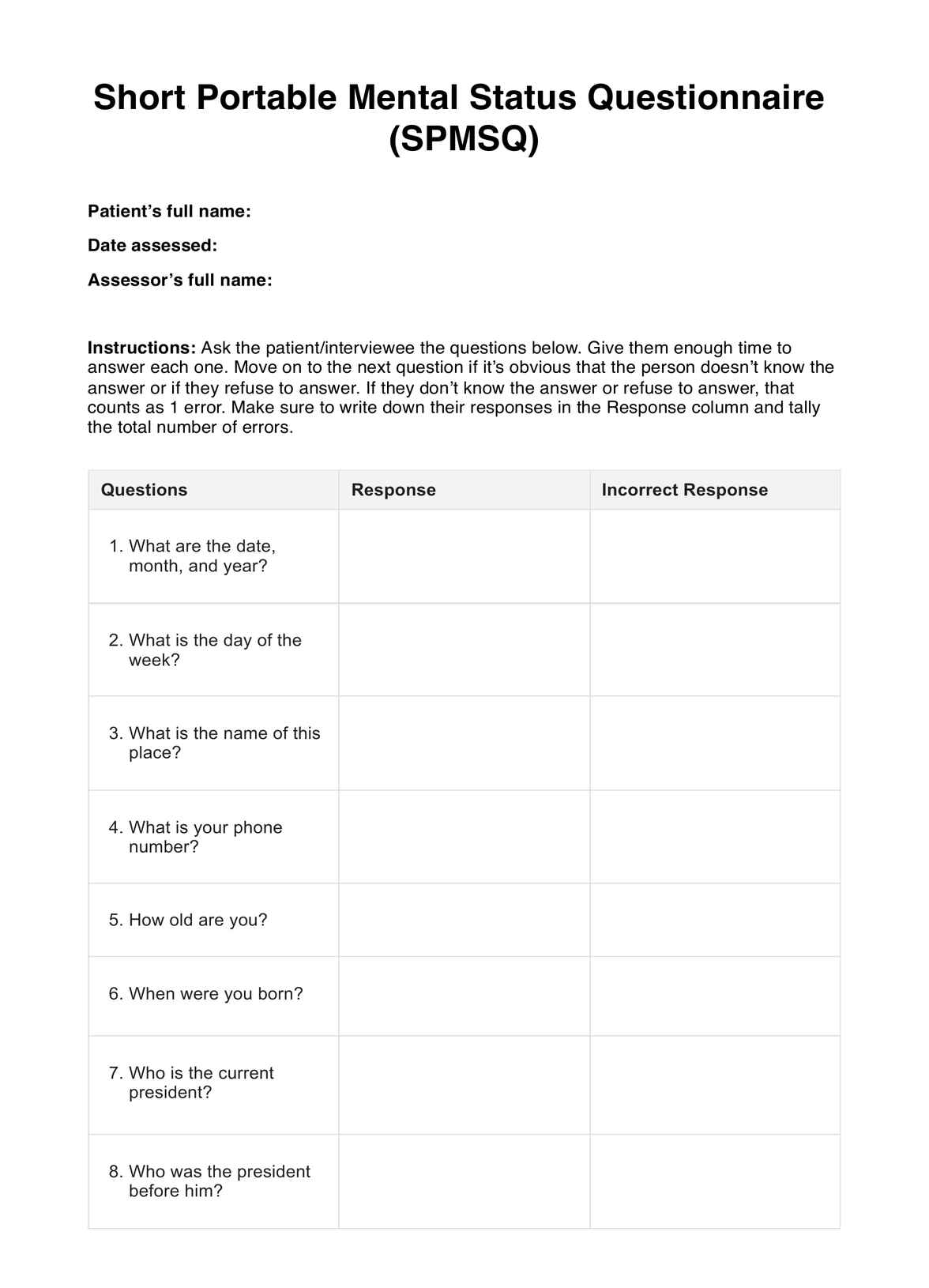The time required to complete this assessment varies based on individual performance and pace, typically taking around 20-30 minutes.

Short Portable Mental Status Questionnaire (SPMSQ)
Use the Short Portable Mental Status Questionnaire (SMPSQ) to quickly gauge the cognitive functioning of elderly patients.
Use Template
Short Portable Mental Status Questionnaire (SPMSQ) Template
Commonly asked questions
The difficulty of the questions in this assessment may vary, but they are designed to be comprehensible for individuals with diverse backgrounds and knowledge.
Yes, this assessment is designed for use by individuals without specialized neurology or similar professional backgrounds, making it accessible to a broader audience.
EHR and practice management software
Get started for free
*No credit card required
Free
$0/usd
Unlimited clients
Telehealth
1GB of storage
Client portal text
Automated billing and online payments











